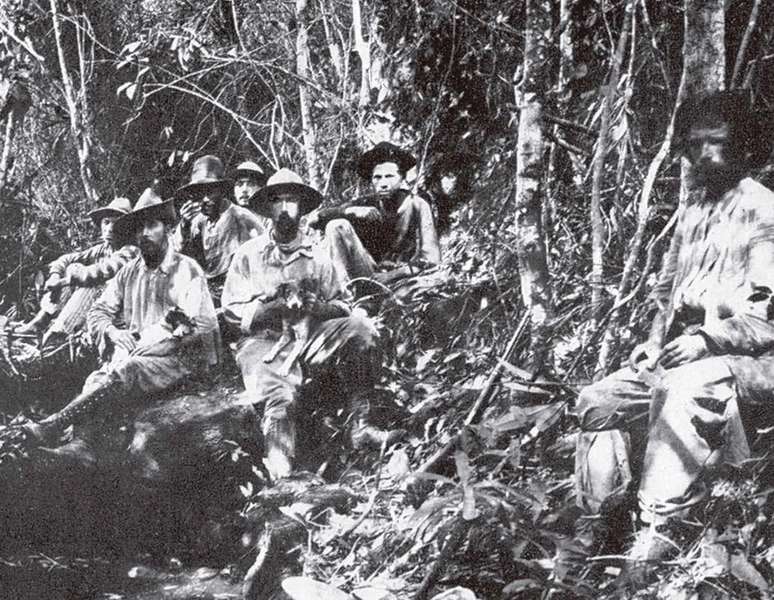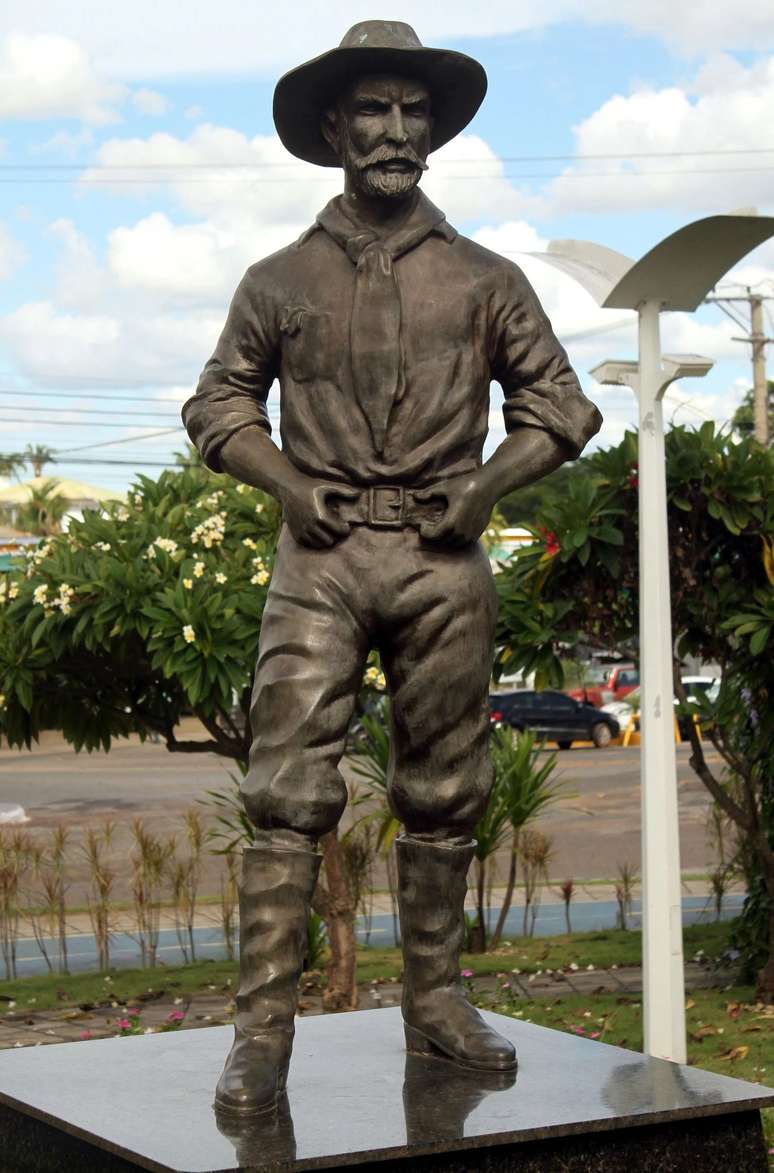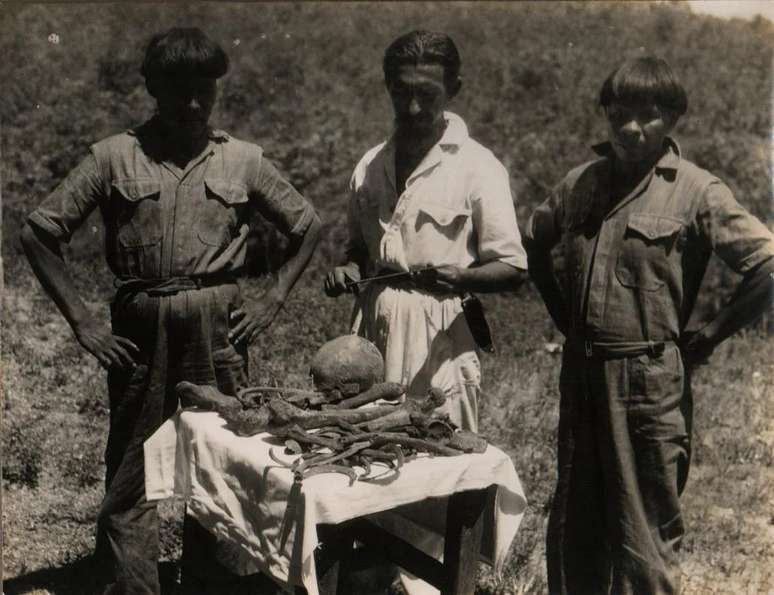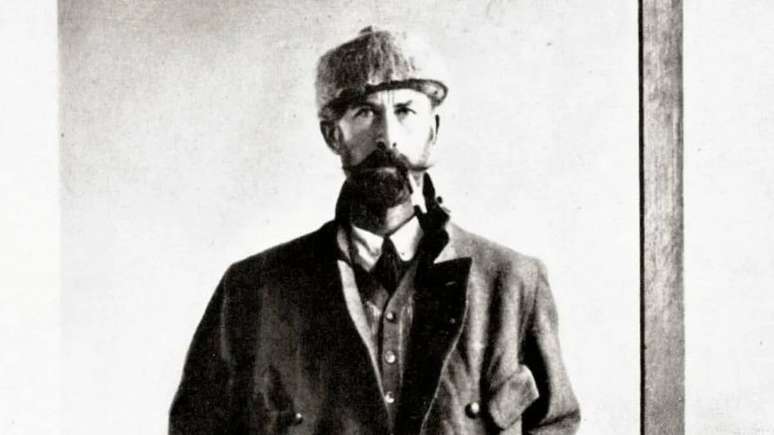The British colonel disappeared in some isolated point of Mato Grosso […]
Nearly a century ago, British Colonel Percy Fawcett disappeared somewhere isolated in Mato Grosso, searching for a portal to City Z.
Accompanied by his son Jack and his friend Raleigh Rimell, Fawcett disappeared without leaving any clues about the Abandoned City, as this supposed location in the Serra do Roncador region was also known.
Legend even says that this destination, more than 500 kilometers from Cuiabá, is a secret passage to a lost civilization.
Fawcett was sure that the desired location was Brazil and left Cuiabá for one of the “most difficult forests of the Amazon”, in the words of David Grann, whose biography Z, the lost city (Companhia das Letras) received a disastrous film adaptation in 2017.
For centuries, the Amazon was treated as a hostile land, from which no expedition returned to tell the tale. They remained there, adding to the list of intriguing disappearances in the largest tropical forest on the planet.
But the expedition led by Fawcett was not just one of these, nor did it go unnoticed by the curious eyes of the world.

Curiosities about Fawcett in Mato Grosso
His insistence on finding such a portal to City Z was based on his experiences in ancient Ceylon, where he found ruins of an ancient temple with unknown inscriptions, and in Document 512, a letter with characters that provided clues to the location of a lost city in Brazil.
His theories gained new elements when his friend Rider Haggard (author of King Solomon’s Mines) gave him a statue, supposedly from Brazil. The pieces began to fit together and Fawcett was increasingly certain that the statue found in Brazil was from Atlantis.
However, before his fateful voyage, the British had already made seven expeditions to unmapped areas of South America, between 1906 and 1924.
For his last trip, he also asked for the support of the then President of Brazil, Epitácio Pessoa, but the military officer Cândido Rondon refused the request, since the country did not need foreigners on its expeditions in the national territory.

After starting his journey, Fawcett sent letters to his wife Nina that either did not indicate his exact location or were written with inaccurate information. The explorer, who according to some scholars was looking for precious stones and a title that would give him world fame, really wanted exclusivity in his discovery.
With his trademark Stetson hat and exaggerated taste for adventure, Fawcett would become known as The Real Indiana Jones. But he would never be found again, neither here nor in other dimensions.
“Fawcett wanted to make the greatest discovery of the century, but he ended up at the center of the greatest exploratory mystery of the 20th century,” analyzes biographer David Grann in his book.
As for Hermes Leal, author of The Enigma of Colonel Fawcett, the Real Indiana Jones (edited by Geração), “Fawcett was not a scientific explorer, but he left a legacy of literature and adventure.”
Thus, in the years following their disappearance, several searches were organized to discover the whereabouts of the three, such as the Dyott expedition, in which the British man’s youngest son, Brian Fawcett, took part.

Other famous expeditions were the one financed by the businessman Assis Chateaubriand, which gave rise to the series of reports Will there be a Brazilian Atlantis?and that of Antonio Callado, in which the native Orlando Villas Boas claimed to have found the alleged bones of Fawcett.
In April 1951, Orlando Villas Boas heard Kalapalo’s account of the murder of the three missing men. Cuiuli, the informant, stated that the murderer Cavucuira, by then already dead, had thrown the two youths into Lagoa Verde and buried Fawcett nearby.
But the exams of the Royal Anthropological Institute from London and a dentist who had treated the colonel, in Rio de Janeiro, denied the discovery and Villas Boas spent nearly two decades without knowing what to do with the bone.
Just as Brian Fawcett recalls in the book The Fawcett Expedition: Journey to the Lost City of Z (ndr. Record), “people who find treasure are often anxious to keep the fact a secret.”
And that time it seems it was Percy Fawcett.
Source: Terra
Ben Stock is a lifestyle journalist and author at Gossipify. He writes about topics such as health, wellness, travel, food and home decor. He provides practical advice and inspiration to improve well-being, keeps readers up to date with latest lifestyle news and trends, known for his engaging writing style, in-depth analysis and unique perspectives.








